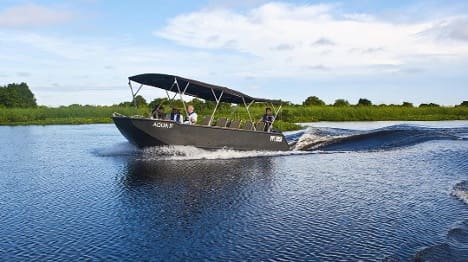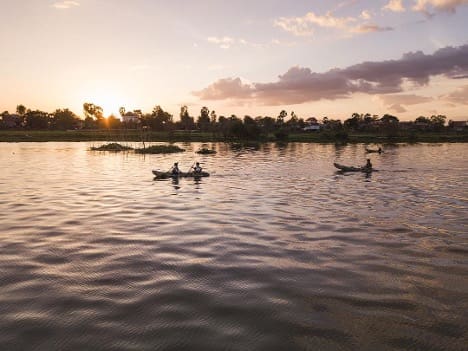The Mekong River, which is a source of livelihood for millions and a popular destination for the tourism industry, is facing challenges due to the impacts of climate change. Stretching nearly 4,350 kilometres through China, Myanmar, Laos, Thailand, Cambodia, and Vietnam, the Mekong River’s health is crucial not only for the ecological balance but also for the economic vitality of the region, particularly for those dependent on river cruise tourism.
This blog will further look into the specific environmental changes affecting the Mekong River, including the changes to water temperature, flow, and biodiversity. It will also explore how these changes are reshaping the future of river cruise tourism, focusing on the challenges and the emerging opportunities for sustainable practices within the industry.
Rising temperatures and water levels
Climate change is resulting in rising temperatures and fluctuating water levels along the Mekong River. These changes are not only a threat to biodiversity but also raise significant challenges to the logistics and safety of river cruises. Higher temperatures lead to more intense and frequent heat waves, making the cruise experience less comfortable and potentially hazardous for tourists unaccustomed to extreme conditions.
Additionally, water levels in the Mekong River fluctuate more frequently now due to irregular precipitation patterns, affecting the flow of the river. During the dry season, lower water levels can prevent cruises from going through certain parts of the river, while excessive rainfall during the monsoon can lead to flooding, disrupting cruise tours and causing damage to infrastructure.
Damaged ecosystems and biodiversity loss
The Mekong River is known for its diverse ecosystems and is home to species not found anywhere else on the planet. This includes the Mekong giant catfish and the Irrawaddy dolphins. However, climate change is destroying these ecosystems, endangering the survival of these unique species.
Warmer waters can adversely affect the life cycles and breeding patterns of aquatic species, while changes in water flow and quality can result in habitat loss. The deterioration of biodiversity affects the natural beauty that attracts tourists and also impacts local communities that depend on these species for their livelihood. This biodiversity loss is seriously affecting the tour experience, as the unique wildlife of the Mekong river is a major attraction for these tours.
Impact on local communities and economies
Local communities located along the Mekong River are closely connected to the river’s health. As climate change causes disruptions to fisheries and agriculture, it also impacts the livelihoods that depend on these resources.
For the Mekong River cruise industry, this impact on local communities means possible problems in the supply of fresh local produce and seafood that are commonly found on cruise menus. Moreover, due to the socio-economic stress on local communities, the industry may experience decreased investments in tourism infrastructure and services, affecting the quality of the tourism experience.
Sedimentation affecting river health
One of the less noticeable but major impacts of climate change on the Mekong River is the change in sediment flow. Dams and changes in rainfall patterns affect the amount of sediment transported down the river, which is essential for maintaining the fertility of the delta regions.
Less sediment means a higher rate of erosion, which can lead to changes in the river’s course over time. This also affects the ecosystem and the ability of cruises to flow. Consequently, this directly affects the cruise industry, as changing river paths can restrict access to some of the more remote and pristine locations across the Mekong River that are popular among tourists.
The future of Mekong River cruises
In response to these challenges caused by climate change in the Mekong River, the cruise industry is taking steps to adapt. Many Mekong cruise operators have started implementing more sustainable practices, such as using cleaner fuels, reducing waste, and adding educational components about climate change into their services. These initiatives not only help reduce the impact of cruises on the environment but also raise awareness among tourists about the challenges facing the Mekong River.
Furthermore, initiatives like “Mekong for the Future,” implemented by the World Wide Fund for Nature (WWF), are an example of the increasing collaboration between governments, environmental organisations, and the tourism industry. This programme aims to improve natural resource governance in the Lower Mekong by supporting civil society’s participation in managing these resources.
Developing a resilient future for Mekong River cruises


The climate change on the Mekong River is affecting everything from biodiversity to the efficiency of cruise operations. However, these challenges also offer an opportunity for the industry to participate in sustainability and conservation efforts.
By making operations more environmentally friendly and adaptable, cruises can continue offering unforgettable experiences while preserving the river’s natural beauty and supporting local communities. For travellers looking to explore the Mekong River, choosing responsible cruise operators who are committed to sustainability is an essential part of protecting this incredible river for future generations.








Leave a Reply
View Comments